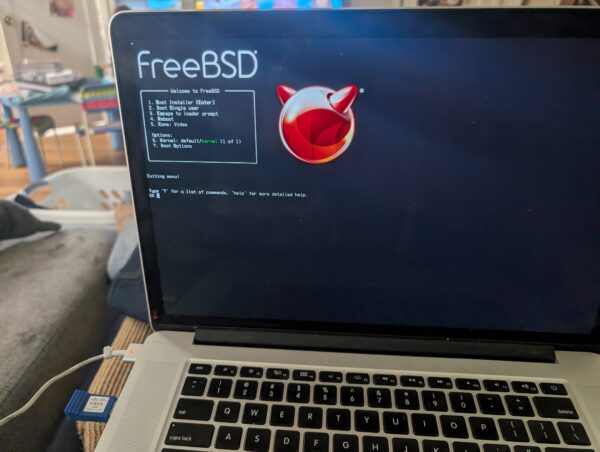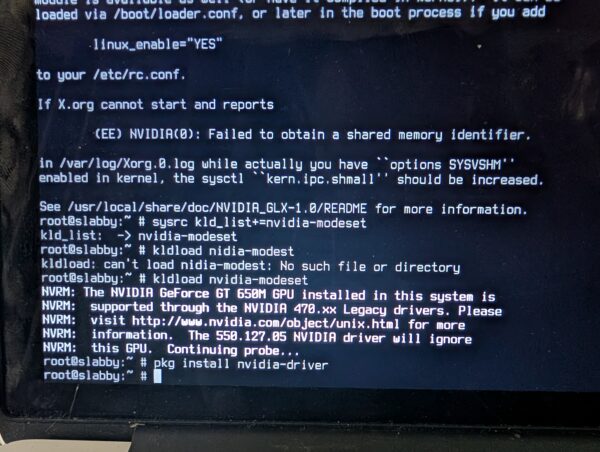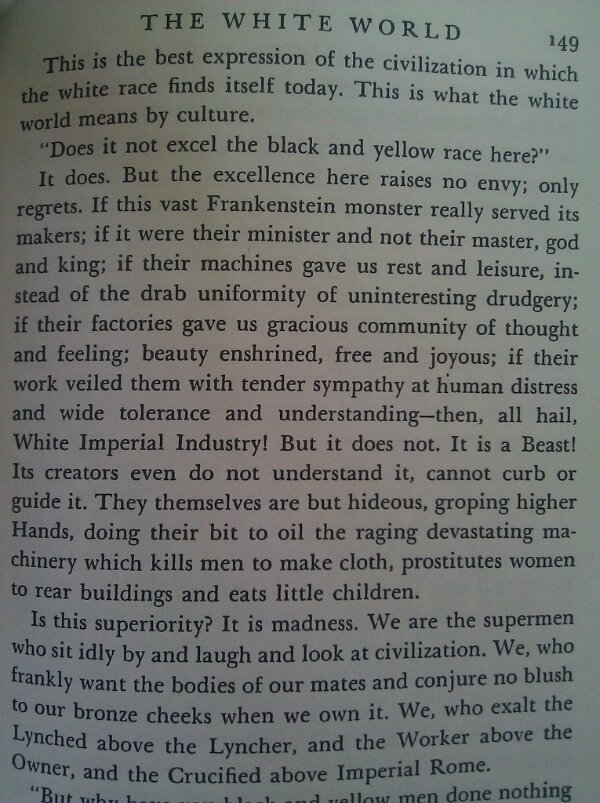Link:
https://dannyman.toldme.com/2026/01/17/a-man-becomes-his-attentions/
Along the Leestown Road, near an old whitewashed springhouse made useless by a water-district pipeline, I stopped to eat lunch. Downstream from the spring where butter once got cooled, under peeling sycamores, the clear rill washed around clumps of new watercress. I pulled makings for a sandwich from my haversack: Muenster cheese, a collop of hard salami, sourdough bread, horseradish. I cut a sprig of watercress and laid it on, then ate slowly, letting the gurgle in the water and the guttural trilling of red-winged blackbirds do the talking. A noisy, whizzing gnat that couldn’t decide whether to eat on my sandwich or my ear joined me.
Had I gone looking for some particular place rather than any place, I’d never have found this spring under the sycamores. Since leaving home, I felt for the first time at rest. Sitting full in the moment, I practiced on the god-awful difficulty of just paying attention. It’s a contention of Heat Moon’s — believing as he does any traveler who misses the journey misses about all he’s going to get — that a man becomes his attentions. His observations and his curiosity, they make and remake him.
William Least Heat-Moon
Blue Highways
Feedback Welcome
Link:
https://dannyman.toldme.com/2026/01/13/from-our-undocumented-workers/
Excerpts from some brunch-time reading, penned by Cincinnatus Hibbard, via Metro Silicon Valley, transcribed by hand from the print edition:
“How often do you think about ICE?” I asked “Juan,” the gruff old ranch hand. He paused, reckoning, and replied, “Maybe 50 times a day.” That shocked me–was he that frightened? He had been stoical, like a rock, even when he had told me that he had not seen his wife or his children living in Mexico for 23 years. There were grandchildren now–grandchildren he had never held. His eyes were distant. Perhaps, looking inward, he was trying to see them now.
“Why don’t you go back to see them?” I asked, deeply moved. “I cannot re-cross the border,” he said. There is no work back home. My family, they need me here–working.”
We sat at a picnic table under a tree beside a field, where undocumented farmworkers volunteered after their work shifts, farming organic vegetables for the local food bank. Despite paying local and federal taxes, and despite their poverty, undocumented immigrants are inelegible for Calfresh foodstamps–as well as Medicaid medical insurance, disability insurance (though they work some of the most dangerous jobs) and Social Security retirement checks. They might be keeping those safety net programs solvent for us.
The winter crops were in. The workers were tending two types of onion, garlic, two kinds of cabbage, Brussels sprouts, jicama–and strawberries for the small children to pick. “Why do you work here, after working so hard in the vineyard all day?” I asked “Ernesto.”
“Because I know hunger,” he said. “I know what it is like …”
. . .
This is terror.
“Lupe” talked about a pain she had in her pelvis last summer. For months, the pain grew and grew intolerable, and still she told no one–she knew her friends would try to make her go to the emergency room–but the hospital wasn’t safe from ICE. What was this pain stabbing up like knives from her pelvis to her navel–“Was it cancer?” she wondered.
Finally, she admitted it–there was no hiding it; she would pause in her farm work as she breathed through the unbearable pain, swooning. Her friends and family were begging her to go, but she wouldn’t go–she would be taken by ICE. What would happen to her children then? Finally, she was taken in a faint for emergency surgery, by friends with H2-A papers.
This is terror.
. . .
“Sophia” fears for her teenage daughter, “Ana,” who was already given to panic-attacks. Like many Latino youth with undocumented friends and relatives, her social media algorithm is filled with shaky cam POV shots of raids and arrests at homes and school drop-off, or ICE contingents parading in full battle regalia down residential streets, guns pointed, or smuggled videos of immigrants deported to war zones (like South Sudan) or hell-on-earth prisons (like El Salvador’s CECOT prison.)
. . .
This shift to deportation work has caused slow-downs, stoppages, and/or unraveling of cases against “high level” child sexual predators, sex traffickers, smugglers, scammers, international criminals, embargo evaders and international terrorists. As the deportation arrests surge, the true bad guys are getting away.
I re-typed this stuff from the print edition because 1) I prefer reading print to begin with 2) my modest manual effort in transcribing the words means more to me and my soul than simply copying-and-pasting the same quickly-forgotten text around the Internet. I hope that in some small way, these words find meaning for you.
Feedback Welcome
Link:
https://dannyman.toldme.com/2026/01/07/hello-from-the-ruins/
I heard on that ultra-trendy news site, NPR, that Social Media is On The Way Out in 2026. What comes next? Well, I kinda like blogs. And I’m not the only one. Joan Westenberg wrote a kick-ass piece here: The Case for Blogging in the Ruins about the long view of how sharing knowledge works and how social media kinda pissed all over things … I’m going to just drop some excerpts …
Before social media ate the internet … blogs occupied a wonderful and formative niche in the information ecosystem. They were personal but public, permanent but updateable, long-form but informal. A blog post could be three paragraphs or thirty pages.
When I write a blog post, I’m writing for an imagined reader who has arrived at this specific URL because they’re interested in this specific topic; I can assume a baseline of engagement; I can make my case over several thousand words, trusting that anyone who’s made it to paragraph twelve probably intends to make it to paragraph twenty.
When I write for social media, I’m writing for someone who is one thumb-flick away from a video of either a hate crime or a dog riding a skateboard. … The format actively punishes nuance, which means that a thoughtful caveat reads as weakness and any acknowledgment of uncertainty looks like waffling.
She explains the origins of Essays: provisional attempts to try out ideas.
Social media flattens all of this into statements: Everything you post is implicitly a declaration. Even if you add caveats, the format strips them away. What travels is the hot take, the dunked-on screenshot, the increasingly-shitty meme, the version of your argument that fits in a shareable image with the source cropped out.
I keep thinking about how many interesting folks have essentially stopped writing anything substantial because they’ve moved their entire intellectual presence to Twitter or Substack Notes. … It’s like watching someone who used to compose symphonies decide to only produce ringtones.

The capacity for hot zingers like the symphonies to ringtones analogy are maybe something we can thank our social media experiences for.
She’s got some advice on what makes a good blog and how to get started, and how to address “the Discovery Problem” with the observation that blog entries get indexed and surfaced over time, where social media disappears. I have to admit, though: since Social Media came about, this humble blog has received about zero comments over the past decade. Kind of a bummer. But the quiet exploration over here in my own space beats The Monetize Everything Hate Machine.
Anyway, it is nice to find another feed to add to https://theoldreader.com/.
1 Comment
Link:
https://dannyman.toldme.com/2025/03/04/2025-02/
2025-02-04 Tuesday
Yesterday, I installed FreeBSD.

You see, I picked up a very old 15″ MacBook Pro. Very Old like around a decade? I paid not more than $50. The battery officially “needs maintenance” but it is fine for web browsing or playing games while sitting on the sofa. Or it was, because Apple stopped supplying OS updates and then Google stopped supplying Chrome updates on the old MacOS and then Steam dropped support because it uses Chrome as an embedded browser. So, just slap Linux on there . . . but if we’re doing things in The Old Ways why not try FreeBSD?
FreeBSD was my first free Unix Operating System. I must have first used it in 1996? It is a great server OS, and made a fine desktop in the old days as well. Sometime in the aughts I transitioned to Ubuntu Linux, just because a more mainstream OS tends to have better support.
So, I busted out my old 4GB Cisco-branded USB key and tried it out. The crisp white fonts detailing the bootstrap felt comforting, probably from Old Days. The installer set up ZFS and added a user. From there I had to bust out a USB wifi dongle that had driver support. I worked my way through setting up nvidia drivers and X windows and KDE, and . . .

Once Plasma was running, it was easy enough to switch the display scaling to 150%. I was mostly home!
It was more effort just to get that far than I am used to with Linux. But, I enjoyed working my way through The Handbook like it was the late 90s all over again. That we watched an episode of “Babylon 5” while the system churned through a pile of Internet downloads really got that 90s vibe going. I couldn’t su. Then I recalled the wheel group, granted myself access, then installed sudo.
Alas, I got into trouble installing steam and google chrome because something was wrong with the Linux emulation required for both. And I had no clue how to get the internal wifi working. And the dongle was slow. Like 90s Internet. So, the next day, I busted out a 16GB Kingston USB device and brought kubuntu in. Quick work. ubuntu-drivers figured out how to activate the internal Broadcom wifi, though I had to manually sudo apt install nvidia-driver-470, but FreeBSD had given me the clue for that earlier:

So, you could say, the visit to FreeBSD had been worth the trip.
2025-02-07 Friday
Yesterday I set out to catch up on bills. First order of business was to wipe the old phone and put it in the return mailer to get some trade-in credit from Google. I then noticed that my personal workstation was lagging on keyboard input. I tried a reboot. It got stuck at boot and soon after, stuck at BIOS. Fearing the worst, I started removing components: video card, M.2 daughter card, RAM … not until I disconnected the 2TB SATA drive did the system show signs of health. That was my “mass storage” where I keep the Photographs and Video. I dropped by Best Buy and grabbed a 2TB M.2 card . . . because there are actually slots on the motherboard, then I began the process of pulling the backups down from rsync.net.
My troubleshooting was backwards, you might figure: why not disconnect the hard drives first? Well, in my work life, I encounter bum hard drives often enough, and normally what happens is the system boots, there’s a delay in mounting the failed device, and then boot completes with an error message. Not booting at all . . . I guess this is a difference, probably, between a server-class motherboard and the thing I have in my home workstation which has blinky lights on it to appeal to gamers.
Didn’t get through any bills. And I had a Letter of Recommendation to write — my first, which I apologetically delayed. This morning, I ran up to The Office for All Hands, which got postponed . . . doing Something New is always somewhat intimidating. I was tempted to ask an AI for guidance but I’m a Gruff Old Man from the previous century, so I googled up “letter of recommendation” and got a nice template to follow. Combining that with a little more research and a little bit of writing talent and a desire to Come Through for Someone I wrote up what I felt was a pretty decent Letter of Recommendation and I hope my grateful friend finds some success in their endeavor.
Yay me for personal growth. Yay friend if they get the position! (Or even if they don’t. Personal Growth all around.)
2025-02-21 Friday
This obsession with the immediate “unburdening” of a thing you created is common in non-Japanese contexts, but I posit: The Japanese way is the correct way. Be an adult. Own your garbage. Garbage responsibility is something we’ve long since abdicated not only to faceless cans on street corners (or just all over the street, as seems to be the case in Manhattan or Paris), but also faceless developing countries around the world. Our oceans teem with the waste from generations of averted eyes. And I believe the two — local pathologies and attendant global pathologies — are not not connected.
The modern condition consists of a constant self-infantilization, of any number of “non-adulting” activities. The main being, of course, plugging into a dopamine casino right before going to sleep and right upon waking up. At least a morning cigarette habit in 1976 gave one time to look at the world in front of one’s eyes (and a gentle nicotine buzz). Other non-adulting activities include relinquishment of general attention, concentration, and critical thinking capabilities. The desire for deus ex machina style political intercession that belies the complexities of real-world systems. Easy answers, easy solutions to problems of unfathomable scale. Scientific retardation because it “feels” good. Deliverance — deliverance! — now, with as little effort as possible.
—Craig Mod, Ridgeline Transmission 203
Feedback Welcome
Link:
https://dannyman.toldme.com/2016/07/18/sanders-endorses-clinton/
A “challenge” posted to Facebook:

A moment of thought and I realized the challenge was easy, and heartening. This speech has been given before:
“Hillary Clinton understands that we must fix an economy in America that is rigged and that sends almost all new wealth and income to the top one percent. Hillary Clinton understands that if someone in America works 40 hours a week, that person should not be living in poverty.
She believes that we should raise the minimum wage to a living wage. And she wants to create millions of new jobs by rebuilding our crumbling infrastructure. – our roads, bridges, water systems and wastewater plants.
This election is about which candidate will nominate Supreme Court justices who are prepared to overturn the disastrous Citizens United decision which allows billionaires to buy elections and undermine our democracy; about who will appoint new justices on the Supreme Court who will defend a woman’s right to choose, the rights of the LGBT community, workers’ rights, the needs of minorities and immigrants, and the government’s ability to protect the environment.
This campaign is about moving the United States toward universal health care and reducing the number of people who are uninsured or under-insured. Hillary Clinton wants to see that all Americans have the right to choose a public option in their health care exchange, which will lower the cost of health care.
She also believes that anyone 55 years or older should be able to opt in to Medicare and she wants to see millions more Americans gain access to primary health care, dental care, mental health counseling and low-cost prescription drugs through a major expansion of community health centers throughout this country.
Hillary is committed to seeing thousands of young doctors, nurses, psychologists, dentists and other medical professionals practice in underserved areas as we follow through on President Obama’s idea of tripling funding for the National Health Service Corps.
In New Hampshire, in Vermont and across the country we have a major epidemic of opiate and heroin addiction. People are dying every day from overdoses. Hillary Clinton understands that if we are serious about addressing this crisis we need major changes in the way we deliver mental health treatment. That’s what expanding community health centers will do and that is what getting medical personnel into the areas we need them most will do.
Hillary Clinton also understands that millions of seniors, disabled vets and others are struggling with the outrageously high cost of prescription drugs. She and I are in agreement that Medicare must negotiate drug prices with the pharmaceutical industry and that we must expand the use of generic medicine.
Drug companies should not be making billions in profits while one in five Americans are unable to afford the medicine they need. The greed of the drug companies must end.
This election is about the grotesque level of income and wealth inequality that currently exists, the worst it has been since 1928. Hillary Clinton knows that something is very wrong when the very rich become richer while many others are working longer hours for lower wages.
She knows that it is absurd that middle-class Americans are paying an effective tax rate higher than hedge fund millionaires, and that there are corporations in this country making billions in profit while they pay no federal income taxes in a given year because of loopholes their lobbyists created.
This election is about the thousands of young people I have met who have left college deeply in debt, the many others who cannot afford to go to college and the need for this country to have the best educated workforce in the world if we are to compete effectively in a highly competitive global economy.
Hillary Clinton believes that we must substantially lower student debt, and that we must make public colleges and universities tuition free for the middle class and working families of this country. This is a major initiative that will revolutionize higher education in this country and improve the lives of millions.
Think of what it will mean when every child in this country, regardless of the income of their family, knows that if they study hard and do well in school – yes, they will be able to get a college education and leave school without debt.
This election is about climate change, the greatest environmental crisis facing our planet, and the need to leave this world in a way that is healthy and habitable for our kids and future generations. Hillary Clinton is listening to the scientists who tell us that if we do not act boldly in the very near future there will be more drought, more floods, more acidification of the oceans, more rising sea levels.
She understands that we must work with countries around the world in transforming our energy system away from fossil fuels and into energy efficiency and sustainable energy – and that when we do that we can create a whole lot of good paying jobs.
This election is about the leadership we need to pass comprehensive immigration reform and repair a broken criminal justice system. It’s about making sure that young people in this country are in good schools or at good jobs, not in jail cells. Secretary Clinton understands that we don’t need to have more people in jail than any other country on earth, at an expense of $80 billion a year.”
—Bernie Sanders
All I did was remove the few paragraphs where the T-word was mentioned.
Feedback Welcome
Link:
https://dannyman.toldme.com/2015/09/22/around-the-bend/
Life has been busy lately. I have failed at carving out time for the little things like keeping up with email and reading and writing. One theme that is just below the surface these days, is an understanding of the Individual’s impermanence, that one will inevitably be swept away down the river. But, the good news is, it is the river that is the thing. You stick your foot in the river, and you feel the tug of the currents: this one fast and warm, that one slow and cool. In life, we are these currents, flowing together, mingling, becoming something identifiable and satisfying while also becoming the river itself.
Death has been on my mind lately. Dad passed about a year back, and the Reaper has expressed an interest in the health of another loved one. I am not opposed to Death. We’re all going to get there. Life, the abused cliché reminds us, is the journey and not the destination. I’ll be forty in January. One can read that as the half way mark. I want to pull over and look around. Close at hand, I see my toddler Son, his eyes wide with the possibilities and joys of life, his future for him to know and hopefully to share with his old man. And, not far off, I see my Father, whom my Son will ever know through stories, mainly told by me. Stories I mainly lack. And, yonder still, my own Grandfather, whom I know mainly through the most exaggerated of stories.
We all come from somewhere, and we are all headed somewhere. This bend in the River knows only a short ways upstream, toward the various and contradictory legends of the Wellsprings, and only a short ways ahead, toward the various legends of the Delta, where we believe the River as we have ever understood it will cease as it merges with the Great Ocean.
The August issue of The Sun Magazine brought with it an interview with Stephen Jenkinson, whom some call “The Death Whisperer” … he packs a lot of great ideas that resonate with me into eight pages. Not bad. What follows is a bit of perspective on the idea of one’s influences.
Hoffner: Who would you say are your influences?
Jenkinson: Anyone who claims to know his or her influences probably doesn’t. I think our influences are a lot subtler than we think. For example, I was born nine years after the closing of Auschwitz and the bombing of Hiroshima half a world away. When those soldiers came home from World War II suffering from post-traumatic stress disorder before we had a name for it, North America created the suburbs for them. I grew up in the unacknowledged presence of those wartime horrors: Auschwitz on the one side, Hiroshima on the other, and the suburbs in the middle. That’s an influence on me.
As a child I was read to every night. Before I even understood the words, I was carried along by the momentum of the human voice. The pageant of the story has its way with you, even if its not in a language you can comprehend. Story is a sublime practice that makes us recognizable to ourselves.
These days I admire the songwriter Leonard Cohen, my countryman and a polestar in the firmament for anyone who has faith in human eloquence. Eloquence is a conjuring; it’s magic, and Cohen is a servant as well as a practitioner and a repository of that magic. He’s a patron saint of the Orphan Wisdom School, unawares. I don’t know what kind of life he lives, but it’s inconceivable to me that those songs might come from a duplicitous nature. In a country that appreciated its artists, he would be a national treasure and wouldn’t have to work five minutes in his life unless he was so inclined. As it is he’s been on the road for years trying to make back all the money his manager stole from him.
I met another of my influences at Harvard. As a young man I was on fire with learning about the historical Jesus. I didn’t come from a religious background, but I applied to Harvard Divinity School and got in. I was determined to be a preacher of some sort. I don’t know what else you could do with that kind of education. At the divinity school I met a fellow who was the living incarnation of a stereotypical televangelist: power-blue suit that didn’t fit so good: too-tight white shirt that was popping its buttons. He was in charge that year of vocational counsel. I told him I planned to get a master of divinity and become a pastor or a minister. He asked me the name of my sponsoring congregation, and I said I hadn’t worked that out yet. Then he asked my denominational affiliation. I told him I didn’t have one. “Son, where do you go to church?” he asked. I said that I didn’t, and he asked, “Well, where did you go to church, then?” No answer. So he said, “Let me understand this: you propose to go into the ministry, and you’ve never been to church?” “Yes sir,” I replied. “Well, I nev-uh,” he said, just like that. I was three questions into my vocational interview, and I was done.
My career as a preacher came to an end at that moment. I was counseled to register for a master of theological studies — a layperson’s degree — instead. That same week I met a preaching instructor whose name was Hugh Morgan Hill, but everyone knew him as Brother Blue. He was a vibrant speaker in the African American tradition. He said I should be in his class. I told him I’d already been counseled out of the master of divinity program. “Nobody needs to know,” he said. On my way to his first class I picked up a harmonica. The class had already begun when I got there, and Professor Hill was in full flight. He was a great storyteller and performer. For some reason I started to play my harmonica along with what he was doing, just improvising.
The next week his wife phoned and asked if I’d come with him to a church service — and bring my harmonica.
I performed with Hill on and off for seven years. It was an unofficial apprenticeship. We traveled all over the U.S. and Canada. This was the era of school integration, remember, and there were race riots in some cities, but since we were together, we were OK. He was a holy man from the ghettos of the American heartland. Virtually everything he did in the world was self-initiated. He never seemed to have a job description. He carved it out every time he stood up to speak. I learned from him the importance of proceeding without the green light, the red carpet, the Get Out of Jail Free card. I was emboldened by his example when I was working in palliative care, because I realized that if I was going to serve these dying people well, then I couldn’t wait for anyone to ask me to do it. And if I’m going to serve the era I’ve been born into well, then I can’t wait for approval and recognition. I’m going to have to proceed without it. If it comes, it comes; if it doesn’t, it doesn’t. That, and a lot more, is what I got from him.
Brother Stephen articulates a lot of ideas about Life and Death. Ideas I am still digesting. But I suppose I can share some notes.
To be Alive is to be In Debt to Death. Everything we have, everything … the food we eat day after day, the clothes we wear, the fuel we use to get around … animals and plants, and if you think about it, the Solar energy that fuels All Of It comes from the slow annihilation of the Sun, as its atoms fuse into ever heavier elements. “What will your death feed?”
The Debt is non-negotiable and it will be re-paid.
“Grief is not sadness. There’s sadness in grief, but grief is not exhausted when the sadness goes away. … Sadness has a shelf life, but grief endures …” I picture a small pot, held over the flame of death. The sadness bubbles and splatters and evaporates. The pot is withdrawn from the flame. There is a residue left over. That residue is grief. It does not boil away. You paint with it. You leave a mark somewhere so that when one needs a reminder that “this too shall pass” they may thus be reminded. This paragraph is painted with grief. I hope it feeds your wisdom.
In the interview, Jenkins has a riff about the need for an element missing in our culture: the Rite of Passage in which childhood ends and adulthood begins. A consumer culture derives better profits from a population that is not asked to Grow Up: You Deserve More and More!! His critique resonates but I disagree with the idea that a Rite must “kill off childhood” … on the very next page he explains that it is misguided to shelter children from the idea of death … I think that Childhood is maybe what lends Death its greatest contrast. Young and full of possibility and very self-involved … adults should not be so self-involved, the grown ups must labor to pay the interest on our life debt … but we still need to grow and learn. While we would prefer for grownups to not be self-involved narcissists we need also ask them to be sufficiently self-involved, and other involved, to cultivate their self awareness.
Other involved is what we ask of a child, and what we give a child, when we share with them the fact of Death. Children can appreciate Wisdoms, just as Adults can appreciate Wonders.
A last thought, while I sat in my favorite coffee shop, taking and making these notes, and watching an Old Man drink in the Joyful Clown Antics of some toddlers across the way, was that nursing homes really ought to co-locate with nurseries. Children bring Life into the Room. Elders bring Life as well. The children are starting from scratch, painting with incoherent vitality. The elders have taken their lives, chipped away at it, and produced works of art, called Lives. Day by day, they reveal these works to the children: some are beautiful, some are perplexing, some are sad, and some are horrible. The children react, embrace, reject, imitate, and iterate. Culture ensues, and the river flows enriched.
Feedback Welcome
Link:
https://dannyman.toldme.com/2013/11/25/slaughterhouses-and-battlefields/
Two quotes passed along on September 11, from my meat-eating Grandmother:

A USDA inspector reviews the carcasses of slaughtered pigs for our safety. Credit: Wikmedia Commons
“As long as there are slaughterhouses there will be battlefields.” –Leo Tolstoy
“We are the living graves of murdered beasts
slaughtered to satisfy our appetites.
We never pause to wonder at our feasts,
if animals, like men, can possibly have rights.
We pray on Sundays that we may have light,
to guide our footsteps on the path we tread.
We’re sick of war, we do not want to fight –
The thought of it now fills our hearts with dread,
and yet – we gorge ourselves upon the dead.
Like carrion crows we live and feed on meat,
regardless of the suffering and pain
we cause by doing so, if thus we treat
defenseless animals for sport or gain
how can we hope in this world to attain
the PEACE we say we are so anxious for.
We pray for it o’er hecatombs of slain,
to God, while outraging the moral law,
thus cruelty begets its offspring – WAR.”
–George Bernard Shaw
Feedback Welcome
Link:
https://dannyman.toldme.com/2012/12/03/collocation-vs-colocation/
This drives me insane. Part of the challenge is that most software dictionaries are unaware of the word “colocation” and are happy to offer “collocation” as an alternative, but that is wrong wrong wrong wrong and it makes me a little nuts every time.
So, here is some explanation I just sent to the NOC and copied to the Sales team of a “Colocation Provider” who keeps sending me messages from something called “Collocation Status Report”:
Dear NOC:
A collocation is a statistic used by linguists to determine the
frequency with which words and phrases are found together.
On your contact information page, there is an option to contact Sales
about “Colocation”
Assuming that you are indeed in the business of Colocation, and not
actually updating us on the status of word frequencies, please fix the
name in your outgoing envelope from “Collocation Status Reports” to
“Colocation Status Reports”
Thanks,
-danny
Yup. That’s all I have to say about that.
1 Comment
Link:
https://dannyman.toldme.com/2012/06/23/we-shall-overcome-some-day/
A paragraph I had highlighted as I finished my reading of Du Bois’ “Dusk of Dawn”:
The Dyer Anti-lynching Bill went through the House of Representatives and on to the floor of the Senate. There in 1924 it died with a filibuster and the abject surrender of its friends. It was not until years after that I knew what killed that anti-lynching bill. It was a bargain between the South and the West. By this bargain, lynching was let to go on uncurbed by Federal law, on condition that the Japanese be excluded from the United States.
Sometimes Divide and Conquer needs some unity of purpose to succeed. All too often, we have made compromises to accommodate critically-needed constituencies, and it takes us far too long to realize the evil in the deals we have made, and far too long to correct it. These days I feel that efforts to reduce carbon emissions for the sake of a stable climate are for our generation what race and gender equality, voting rights, workers rights, national infrastructure and slavery were for previous generations.
Feedback Welcome
Link:
https://dannyman.toldme.com/2012/06/22/prop-8-guy-decides-to-stop-hating/
A Prop 8 champion is having a change of heart:
Marriage says to a child: The man and the woman whose sexual union made you will also be there to love and raise you. In this sense, marriage is a gift that society bestows on its children.
At the level of first principles, gay marriage effaces that gift.
[ . . . ]
But there are more good things under heaven than these beliefs. For me, the most important is the equal dignity of homosexual love. I don’t believe that opposite-sex and same-sex relationships are the same, but I do believe, with growing numbers of Americans, that the time for denigrating or stigmatizing same-sex relationships is over. Whatever one’s definition of marriage, legally recognizing gay and lesbian couples and their children is a victory for basic fairness.
I think that there is more to marriage than children, and that those children who can not be adequately cared for by their birth parents are still entitled to be cared for by whatever competent and loving parents society can find for them. At any rate, I am glad to see a Prop 8 supporter come out of the closet and realize that the way to strengthen marriage is to focus on strengthening marriages, rather than denigrating homosexuals.
The other day they were talking about Aung San Suu Kyi on the radio, that the path she chose to follow was the path laid forth by Mahatma Gandhi and Dr Martin Luther King. The idea is not to seek victory over the enemy, but to identify the universal capacity for virtue, to love the enemy and change the enemy’s heart, to be open to a more enlightened and equitable path. I feel that David Blankenhorn’s evolution here, along with the evolution of many Americans, is evidence that this sort of spiritual warfare is carrying the day in my country.
I love the smell of progress in the morning.
HT: kylev
Feedback Welcome
Link:
https://dannyman.toldme.com/2012/04/14/we-are-the-supermen/

“We are the supermen who sit idly by and laugh and look at civilization . . .”
I am reading a book by W.E.B. Du Bois, based on this quote which was captured in a photo of New York graffiti.
Even as America’s race problem has evolved since Du Bois published Dusk of Dawn in 1940, his perspective is valuable. A fuller excerpt from Chapter 6, wherein he conducts a Socratic dialogue with a pair of composite “White Man” colleagues, and delivers an excellent perspective on world history, and modesty: (more…)
Feedback Welcome
Link:
https://dannyman.toldme.com/2012/03/27/party-like-its-1885/
Above all science was becoming religion; psychology was reducing metaphysics to experiment and a sociology of human action was planned. Fighting the vast concept of evolution, religion went into its heresy trials, its struggle with “higher criticism,” its discomfort at the “revised version” of the New Testament which was published the year I entered college. Wealth was God. Everywhere men sought wealth and especially in America there was extravagant living; everywhere the poor planned to be rich and the rich planned to be richer; everywhere wider, bigger, higher, better things were set down as inevitable.
— W. E. B. Du Bois
… who entered college in 1885
Actually, Chapter 3 of “Dusk of Dawn” describes a transition from the world Du Bois was born into of the latter 19th century:
“(As) a young man, so far as I conceived, the foundations of present culture were laid, the way was charted, the progress toward certain great goals was undoubted and inevitable. There was room for argument concerning details and methods and possible detours in the onsweep of civilization; but the fundamental facts were clear, unquestioned and unquestionable.”
In contrast with the “today” of 1940:
“TODAY both youth and age look upon a world whose foundations seem to be tottering. They are not sure what the morrow will bring; perhaps the complete overthrow of European civilization, of that great enveloping mass of culture into which they were born. Everything in their environment is a meet subject for criticism. They can dispassionately evaluate the past and speculate upon the future. It is a day of fundamental change.”
I feel my heart and mind whipsawing between a world culture which is on the cusp of some fundamental, unimaginable change, and a world in which we will pretty much keep doing what we have done, just bigger, bolder, better, faster, with nanites and a higher rate of return . . . I get dizzy thinking about this world I try to live in.
And Religionists and Conservatives keep shouting their objections to a changing world ever louder, ever more viciously. They’re still attacking Evolution, so the concept and theological implications of Anthropogenic Climate Disruption are even more of a leap . . .
But the today of 2012, when the big revolutions appear to be how the European Union will manage debt among member states, and whether Arab countries can successfully democratize, whether there will be regional wars on either side of Asia, and the capacity of fundamentalists to kill civilians . . . today’s world isn’t tottering as obviously as 1940’s “today.”
But it is the Big Things you don’t hear in the news every day; When will climate change trigger famine and mass migration? Will China’s rise be sustained to the point it becomes a world power or will it implode? When are we going to be hit by that asteroid that superheats the atmosphere? Just after the devastating global pandemic that trained against antibiotics and traveled everywhere on jet planes before we noticed it? Will nanofabrication make industry and perhaps agriculture obsolete? Will the Singularity bring upon us a supra-individualist world consciousness? Will medical science and DNA repeal the eternal inevitabilities of aging and death? Is that when we will feel comfortable encapsulating our bodies on centuries-long trips to distant star systems? The new Magellans will refer to centuries as we refer to decades. My thinking is so early 21st . . .
These are the things I tend to wonder about between meetings at work.
Feedback Welcome
Link:
https://dannyman.toldme.com/2011/07/26/the-debt-limits-you/
Some article in The Atlantic about how President Obama has decided to stop being the reasonable guy who makes every last concession imaginable and then some and as of last night is now playing Chicken with the Republicans, daring them to screw the country over, since they’re likely to take the greater share of the blame. Yeah, anyway, this part got me laughing:
There’s an old Soviet joke that a friend once told me. An old man has been standing in line for bread for eight hours. His feet hurt, his back hurts, and he is faint from hunger. Finally, finally the door opens and the baker comes out. He starts to salivate. He fingers the rubles in his pocket.
“Comrades, go home,” says the baker. “There is no flour to make bread today.”
Something in the old man snaps. He has been waiting in these lines for decades, and he has had enough. “This is ridiculous!” he shouts. “I fought in the Great Patriotic War! I worked for forty years in the factory! Now you make me wait in line for eight hours when there’s no flour? You didn’t know this eight hours ago? I spit on you, and I spit on the regime!” And he spits in front of the baker.
A man steps out of line behind him. “Careful, comrade. You know how it would have been in the old days if you had said these things.” With his thumb and forefinger, he mimes a gun being fired at the temple.
Defeated, the man steps out of line and trudges home with everyone else. He goes into his apartment and sits down at the table. His wife walks in just as he pours the last of his vodka into a glass, and drinks it down in one gulp.
“Sergei, what’s wrong?!” she cries, seeing the look on his face. “Don’t tell me they’re out of bread!”
“It’s worse than that. Much worse.” he says heavily.
“What could be worse?”
“They’re out of bullets.”
Americans should maybe be stocking up on their dark humor.
Feedback Welcome
Link:
https://dannyman.toldme.com/2011/07/06/dinosaurs-and-mammals/
“Even though bicycle commuting is on the rise all over the country, as cyclists we remain vulnerable. We’re like mammals in the waning days of the dinosaurs: far more adaptable and with much better long-term prospects, yet in the meantime still in imminent danger of being squashed.”
—Bike Snob NYC

He goes on:
You’d imagine that at some point Americans would wake up to the fact that they’re being sold a very expensive illusion of safety that is in fact killing them and opt for practicality and efficiency over sheer size, but until that day there’s nothing illusory about city streets filled with light-running SUVs driven by a gentry who are more or less free to maim with impunity. And when it comes to cycling for transportation, the fact that your safety–indeed your very life–is not a consideration is what you might call a “barrier to entry.”
We all approach this barrier differently depending on our dispositions. Some of us hop it as adroitly as a cyclocross racer and ride undaunted. Others step over it with considerable trepidation, riding only occasionally or strictly for recreation. Still others simply go around it by opting for other modes of transport. And of course millions of people buy gigantic “safe” automobiles and just drive through the fucking thing while jockeying their smartphones, with two or three cyclists pinned to their bumpers.
As far as the larger-cars-are-safer myth: more massive vehicles need greater stopping distance to break or perform emergency maneuvers. Having more tons of metal surrounding you helps only if you assume you will get into an accident, possibly because your vehicle is bulky and awkward and you have a false sense of security which lowers your vigilance. Then you end up killing the other guy, in the smaller, more fuel-efficient car or bicycle. If you drive an SUV you get bonus points for driving a top-heavy vehicle vulnerable to flipping, which, as a light truck, is unencumbered by the Socialist mandate of rollover protection. Live free and die an avoidable fatality!
Feedback Welcome
Link:
https://dannyman.toldme.com/2011/05/02/and-good-riddance/
Some folks are irritated with American reactions to the death of Osama bin Laden. Julie indicated that she had mixed feelings upon seeing our “own countrymen basically holding a frat party outside of the White House, hanging off of trees and singing ‘Nah nah nah nah, hey hey hey, goodbye!'” I have heard others moan that this doesn’t change anything, why are we celebrating?
So, I expressed my own feelings in a comment on Julie’s blog:
I was happy about the news yesterday, and I still am. We killed a bad guy who has devoted his life to killing us. That is a victory, and I am proud and glad.
When the crowd outside the White House gathered and sang the Star Spangled Banner, it brought a tear to my eye. Then, America the Beautiful. People gathered at Ground Zero for a candle light vigil. In both places, the crowd chanted “USA! USA! USA!” They spoke for me.
I think it is debatable who kills the most Muslims. Our military adheres to Rules of Engagement that put them at greater risk in order to protect Muslim civilians. On the other hand, extremists recruit the young and naive to walk into crowds of Muslims wearing explosive vests.
We are not perfect and we shouldn’t pretend to be. We make mistakes, we kill innocents, and we have failed to hold ourselves to our own standards of humane treatment of prisoners and jurisprudence.
We are drawing down forces in Iraq, which has changed from a brutal dictatorship built on terror to a messy, unstable, imperfect democracy vulnerable to sectarian violence. We now have one less reason to linger in Afghanistan, which may help motivate the government there to get its act together.
Last night was progress. America done good and a bit of pride is perfectly reasonable.
-danny
I mean, its no Moon Landing. No sincere attempt to curb global warming or end world poverty, hunger, disease . . . but it is progress and I’ll celebrate it just the same.
Feedback Welcome
Older Stuff »
Site Archive








